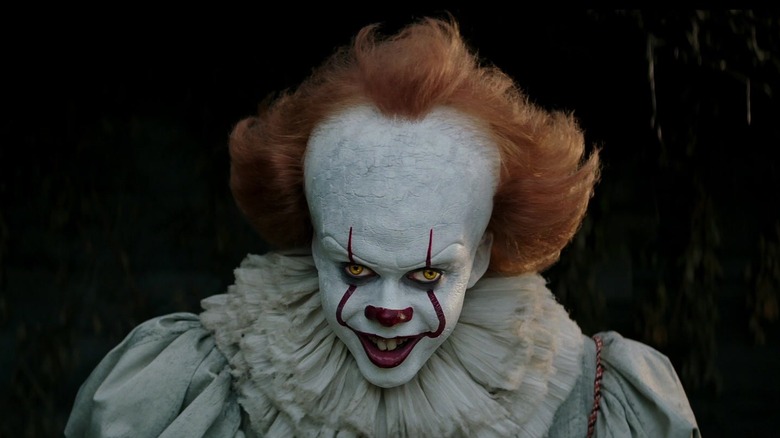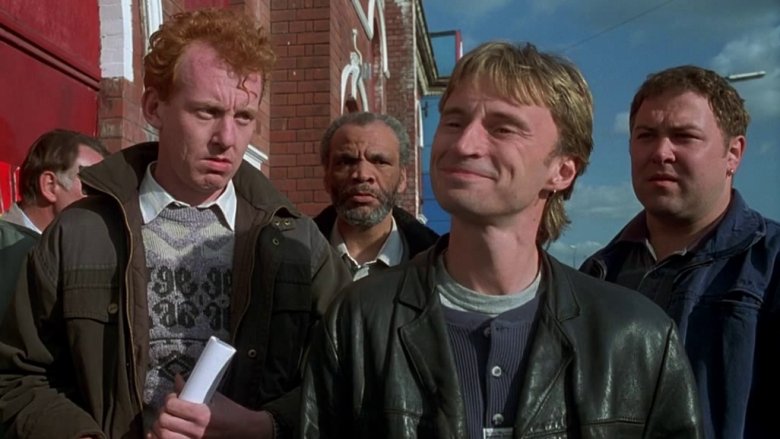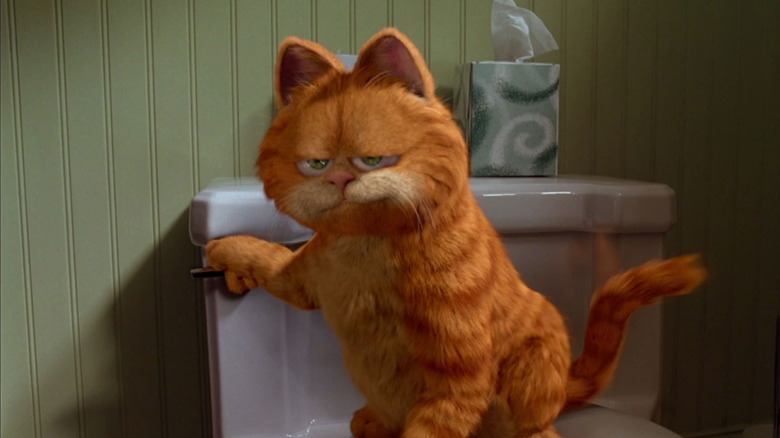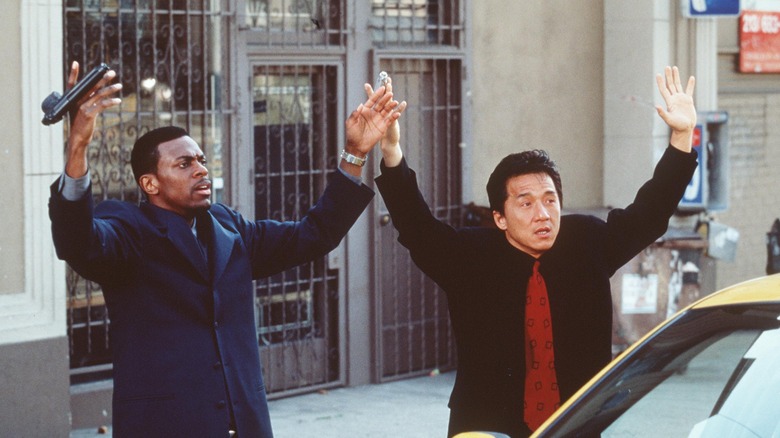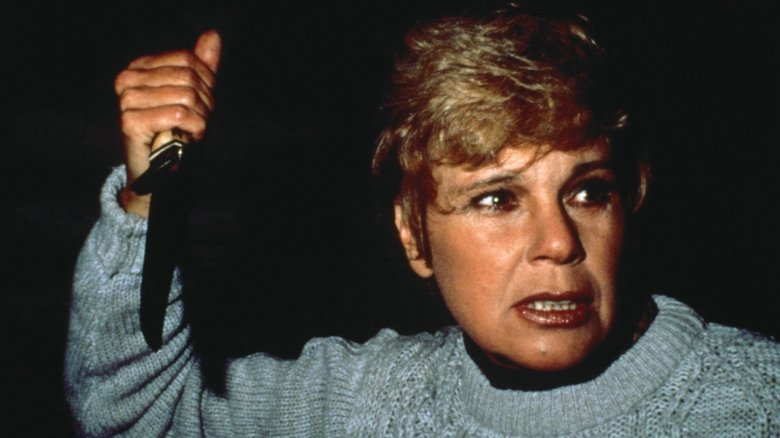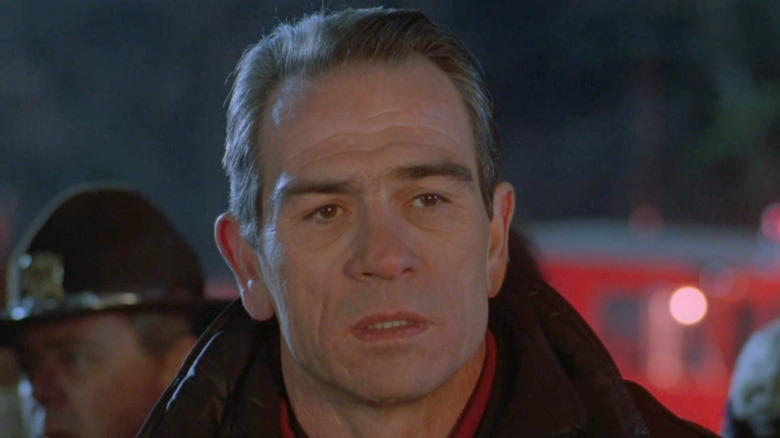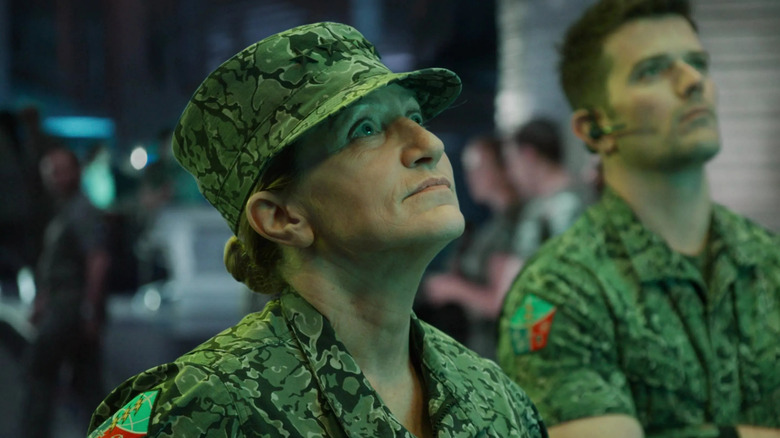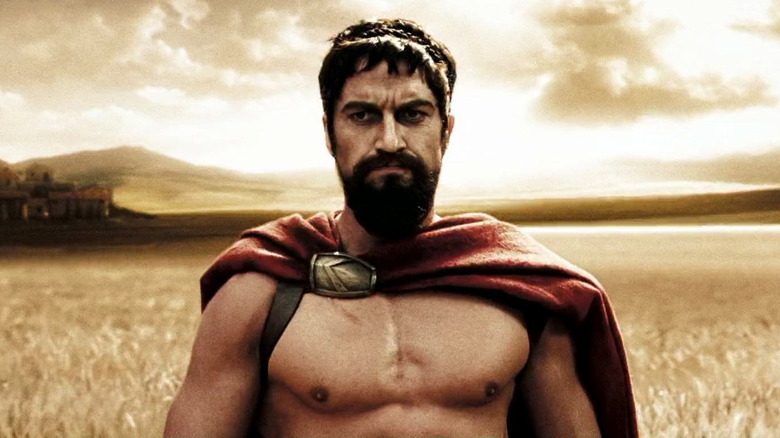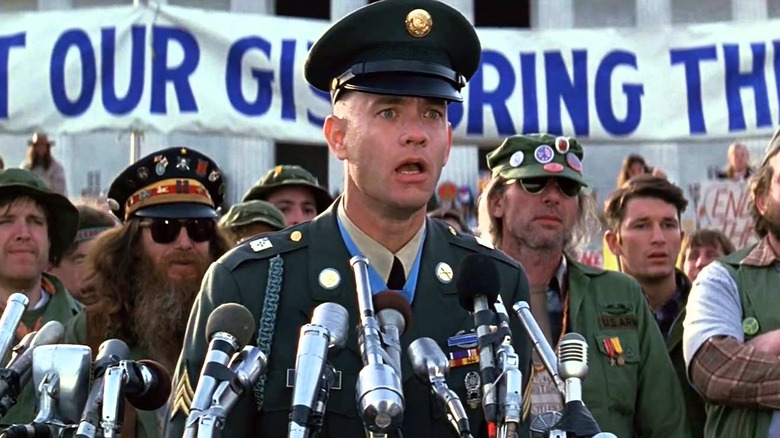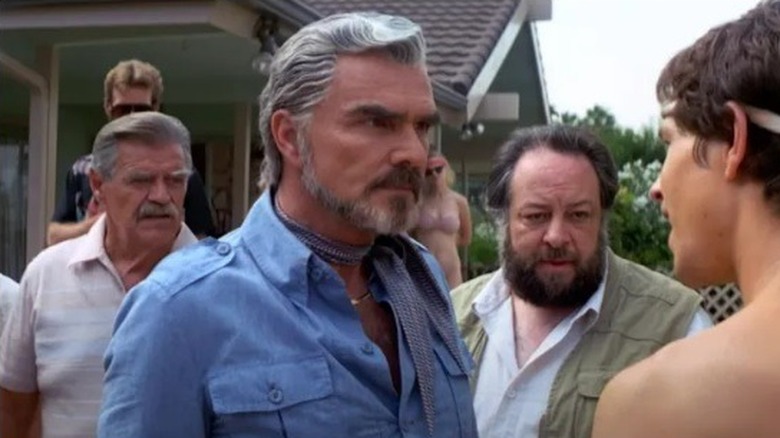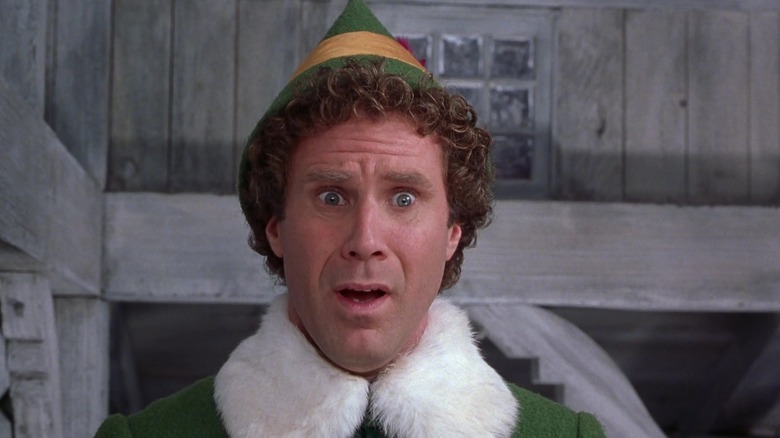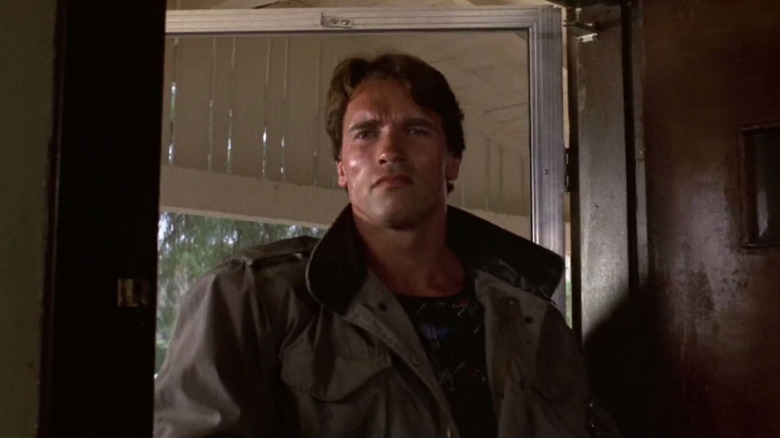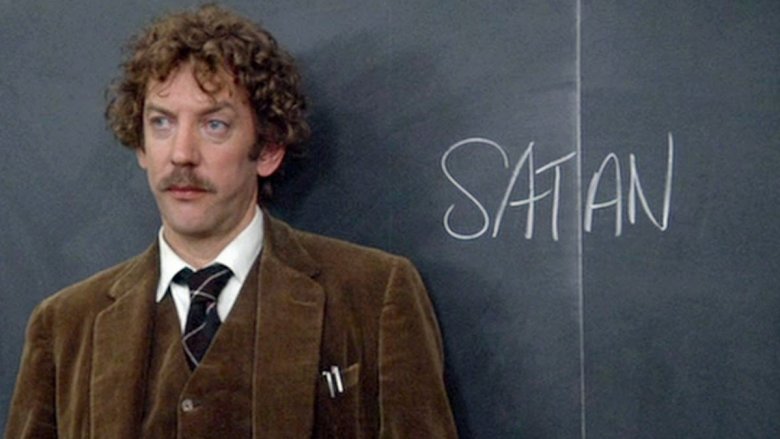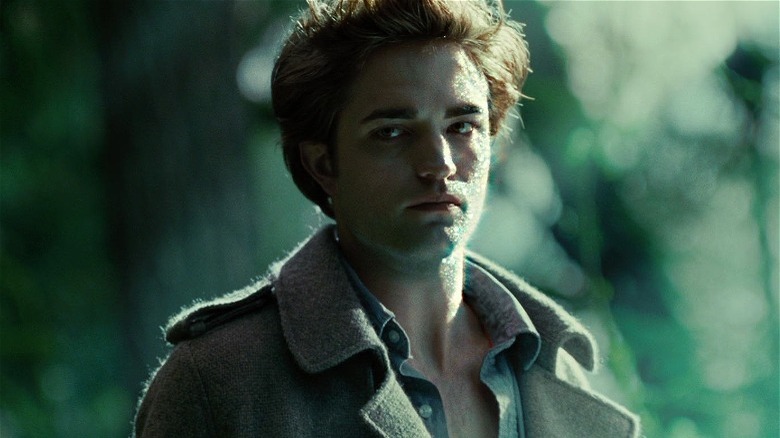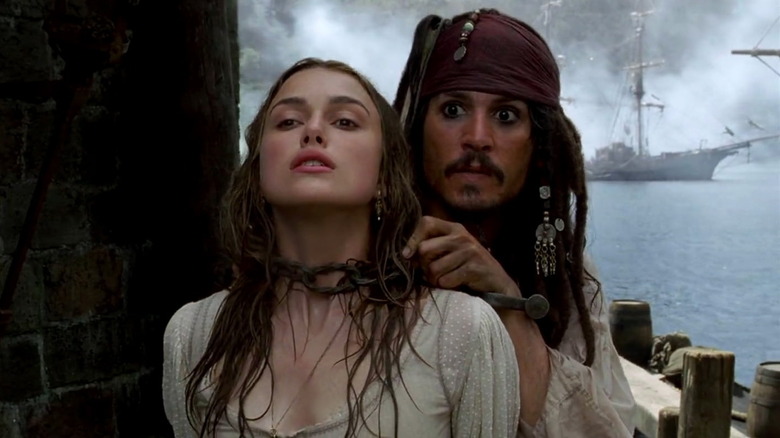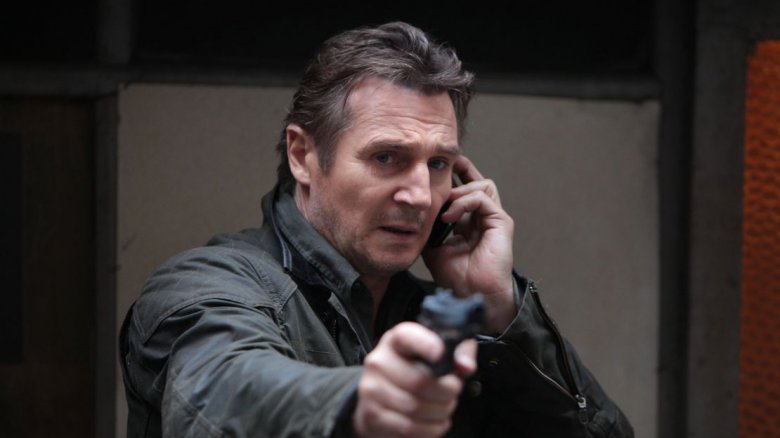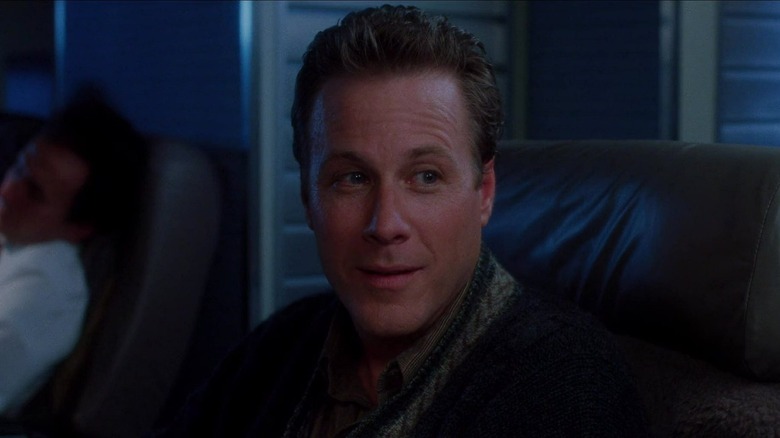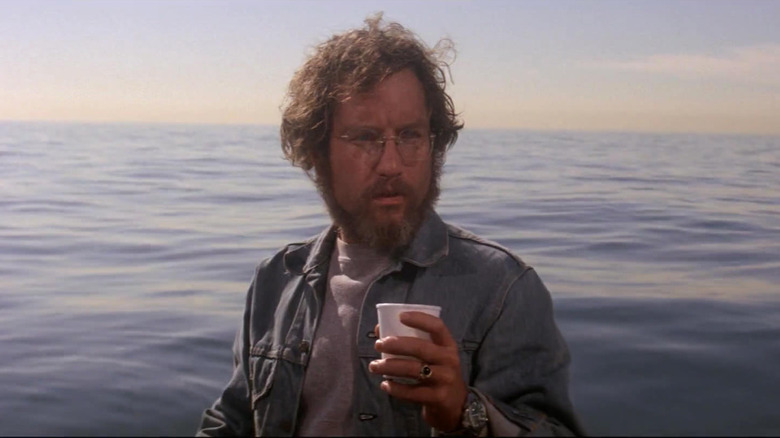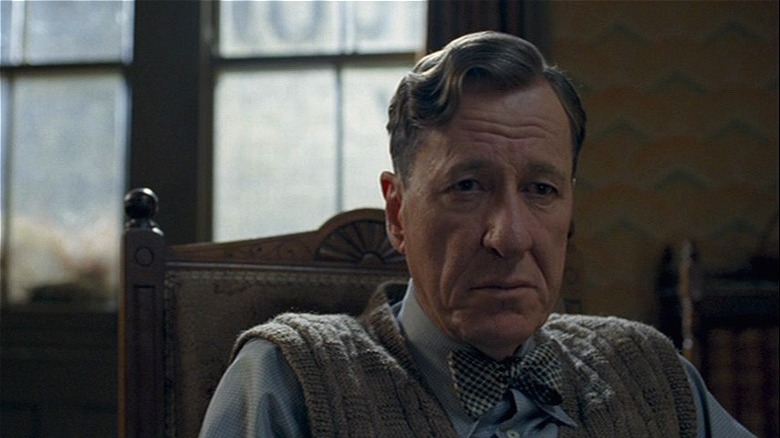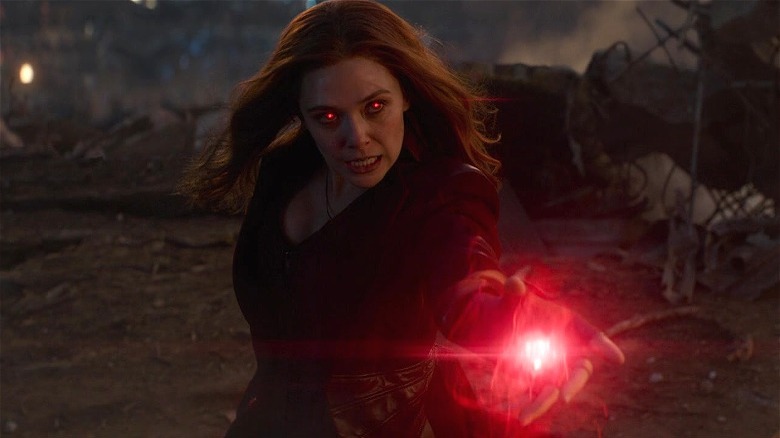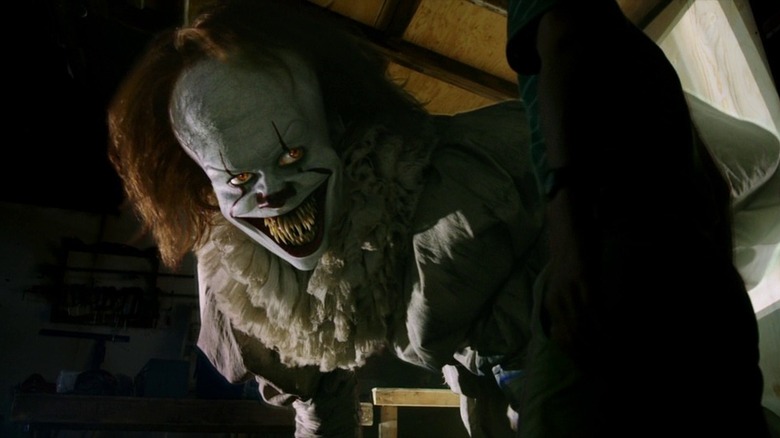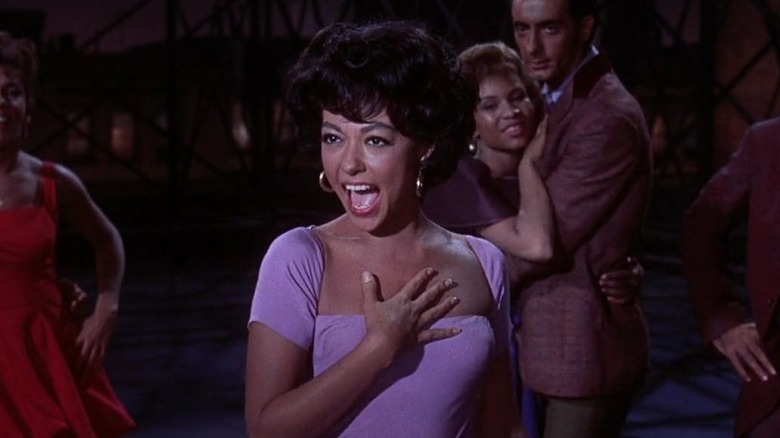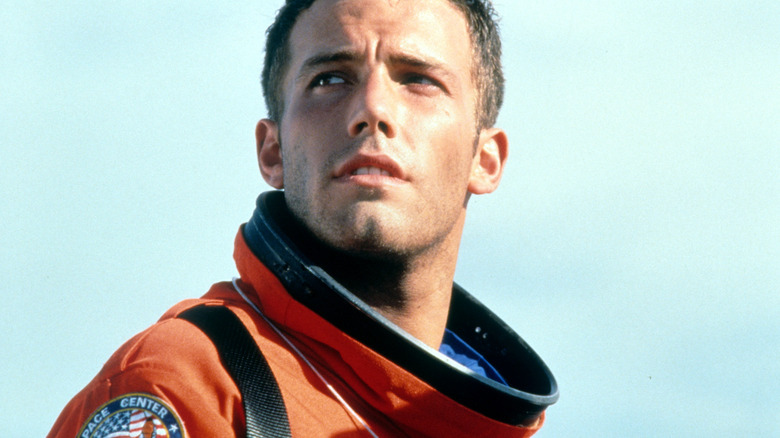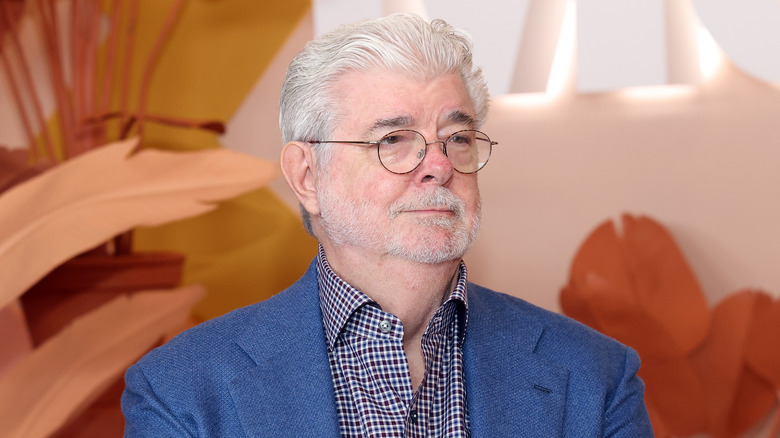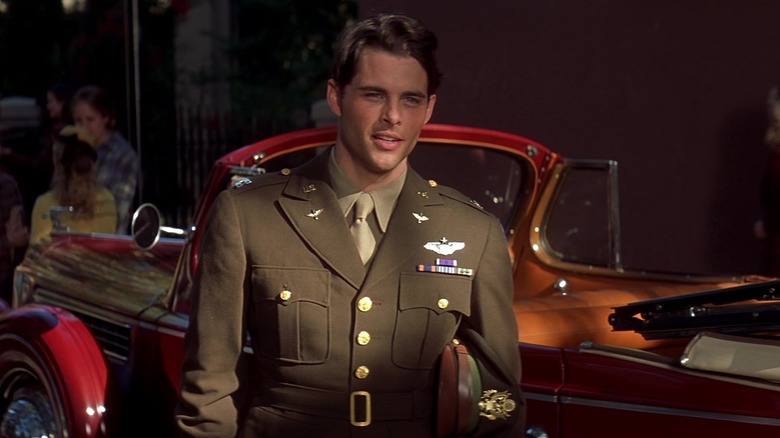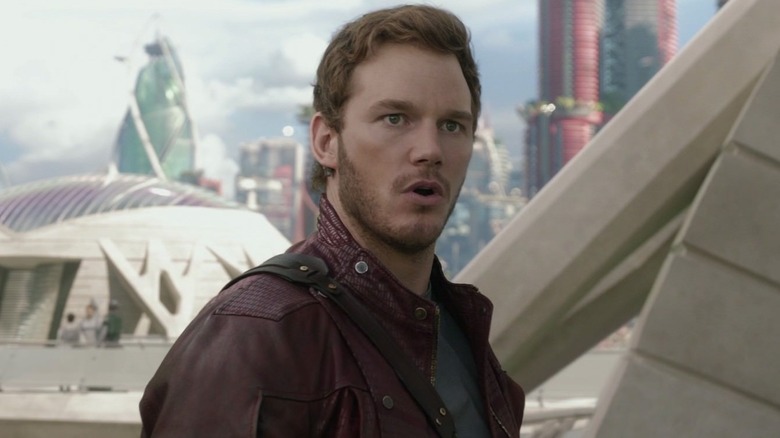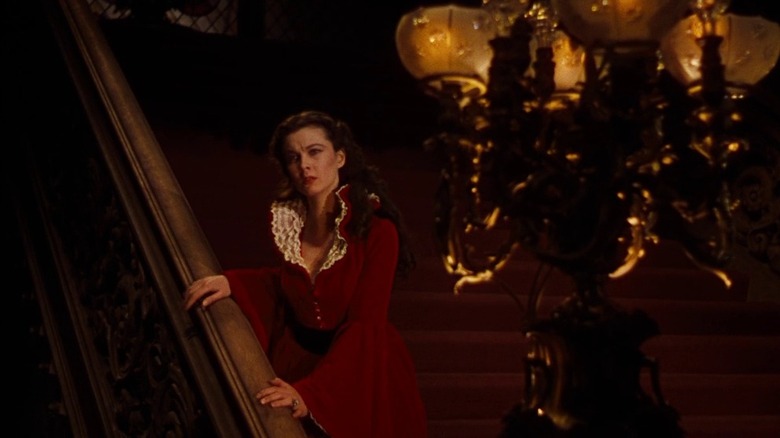Hit Movies That Stars Thought Would Fail
Do you ever watch the trailers for movies like "Geostorm" or "King Arthur: Legend of the Sword" and wonder how any of the actors involved believed the movie was going to be a success? Don't be too tough on them — figuring out whether a movie's going to be any good just by looking at the script is harder than it looks.
We give our favorite stars a lot of credit for picking the right projects, and while they definitely deserve it, the truth is that a lot of an actor's long-term success boils down to dumb luck, and in some cases, that luck is dumber than others. For every thespian who wisely avoided a clunker after looking at the script, there's another who read through a future classic, assumed it would stink, and gave it thumbs down...or, for one reason or another, ended up taking the gig anyway. With that in mind, let's take a look at some actors who starred in critically and commercially successful movies they initially believed would fail.
Robert Carlyle - The Full Monty
If you've never seen "The Full Monty," just imagine "Magic Mike," only filmed in a bleak English city in the '90s, and instead of starring shredded American actors, it featured a bunch of English guys with dad bods. The film was a box office smash, earned four Oscar nominations, and is consistently ranked as one of the greatest British films ever made. Also, lead actor Robert Carlyle hated it.
In an interview with talk show host Graham Norton, Carlyle openly admitted he thought the film was a "load of f—ing pish" and called the whole production an uncomfortable, horrible mess. In the same interview, Carlyle also recalled that his low opinion of the film was echoed by an executive from Fox Searchlight Pictures who, upon seeing an early cut, merely quipped, "straight to video."
Bill Murray - Garfield
Bill Murray voicing the titular character in 2004's "Garfield: The Movie" felt like a full-circle moment. Garfield's voice between 1982 and 2001 was an actor named Lorenzo Music — who also played Peter Venkman in the cartoon "The Real Ghostbusters." Music died in 2001 and therefore couldn't voice the live-action Garfield, so who better to step in than the live-action Peter Venkman?
But nostalgia wasn't the only reason Murray signed on to voice the lasagna-loving feline. When he saw that the movie was co-written by Joel Cohen, he jumped at the chance to be able to work on a Coen brothers movie. As Murray was recording his lines, he was shocked at how bad he thought they were, but he stuck with it and tried to make the best of it. When things didn't improve, he asked to watch back the scenes that had already been cut together — and remarked out loud (via GQ), "Who the hell cut this thing? Who did this? What the f— was Coen thinking?" That's when someone informed him that it wasn't Joel Coen, but Joel Cohen, with an H. At that point he was too far in it to back out, so he finished the job on what ended up being a $200 million+ box office hit.
Jackie Chan - Rush Hour
Though Jackie Chan was an international action movie superstar going back to the 1970s, he struggled for some years to fully break into Hollywood. It wasn't until "Rumble in the Bronx" was brought to the States in 1996 that Chan finally got the crossover hit that had eluded him for so long. Two years later, he'd star in the American-made buddy cop action comedy "Rush Hour" with Chris Tucker, which was the biggest worldwide box office hit of Chan's career up to that point.
However, while filming "Rush Hour," Chan didn't think it was working. He was frustrated that he wasn't allowed more creative control over his fight scenes, as well as in regard to the language barrier between himself and Tucker. Chan had absolutely no faith in "Rush Hour" at all — so much so that, even when the audience at the premiere was loving it, Chan told Yahoo that he was thinking, "Why are they laughing, I just don't understand." The fact that "Rush Hour" tanked in his native China only seemed to reinforce Chan's feelings on the movie's quality. But it was an undeniably huge hit in the U.S., and its sequel did even better at both the U.S. and worldwide box offices — even though Chan thought it was even worse than the original.
Betsy Palmer - Friday the 13th
"Friday the 13th" bad guy Jason Voorhees has become an icon of the horror genre, anchoring the long-running franchise and appearing in everything from comics to a Mortal Kombat game. But he wasn't the bad guy in the first "Friday" — the killer in that movie was Jason's mother, Pamela Voorhees, who was played by the late Betsy Palmer.
Palmer once admitted that the only reason she appeared in the film was because she wanted a new car, specifically a Scirocco. As soon as she found out it was a horror movie, Palmer assumed "Friday the 13th" would come and go without much fanfare, its only lasting reminder being the car she bought with the money, and she was similarly dismissive of the script, calling it a "piece of s—" and joking that her first response upon reading it was to wonder aloud who'd ever go see it.
Tommy Lee Jones - The Fugitive
Tommy Lee Jones is known for playing characters that aren't here for nonsense or afraid to hurt feelings — they tell it like it is. Jones himself also has something of a reputation for the same. From stories about how he couldn't stand Jim Carrey while they were working on "Batman Forever" together and had no problems telling him so, to clashing with director Barry Sonnenfeld while making "Men in Black," there might be a good reason for Jones being frequently typecast as a grump.
Even on the movie that earned Jones his only Academy Award thus far, "The Fugitive," Jones still didn't seem all that happy to be there, nor did he think the movie was any good. In a Rolling Stone oral history of the movie, Jones recalled a moment where he was filming a scene and it just didn't seem like things were working out. "I remember thinking in the back of my mind, 'I'll never work again. This is never going to work,'" he said, fearing that the film would turn out so badly it would derail his entire career. And although Ford is typically too professional to bash his own movies — something he chided Shia LaBeouf for doing in regard to "Indiana Jones and the Kingdom of the Crystal Skull" — Ford's "Fugitive" co-star Daniel Roebuck claimed that Ford also worried the movie was going be a career-tarnishing flop.
Edie Falco - Avatar: The Way of Water
To be clear, Edie Falco didn't think "Avatar: The Way of Water" was going to fail. She thought it had already failed. As we all know, each "Avatar" movie so far has taken approximately 50 years to make, and so the amount of time that passes between when the actors filmed their parts and when the movie actually comes out is significant. So significant, in fact, that Falco thought the second "Avatar" movie — in which she plays General Frances Ardmore — had already come out and had flopped at the box office.
During a 2023 appearance on "The View," Falco explained that she filmed her scenes for "Avatar 2" four years earlier. She didn't really follow updates on it, and eventually just assumed that it had released at some point and was such a huge dud that everyone immediately forgot about it and moved on. Falco then confessed, "Someone recently said, 'Avatar is coming out,' and I said, 'Oh, it hasn't come out yet?'" Given the 13-year gap between the first two movies, it's hard to blame Falco for the assumption — and at least she's able to poke fun at the whole thing, joking that she'll probably never get cast in anything ever again over the whole gaffe.
Gerard Butler - 300
The 2007 movie "300" was arguably the breakout movie for both its director and its lead. Zack Snyder had received acclaim for his "Dawn of the Dead" remake, but it was with "300" that he truly established the filmmaking style that would follow him for much of his subsequent career — not to mention an ability to make successful comic book adaptations. And for Gerard Butler, it was far from his first film role but it was his first huge hit as the top-billed player. When looking back at the film in an interview with The Hollywood Reporter, Butler said that he and Snyder connected immediately during their first meeting and were mutually excited to work together.
But once the actor got on set, it was a different story. "300" was filmed entirely in front of bluescreens and all of the backgrounds were filled in digitally after the fact, something that is much more common now than it was at the time. It was certainly a new experience for Butler, and he had a lot of trouble envisioning the final product. He describes a moment where an actor is reacting to a burning village while simply pointing at a bluescreen, and Butler couldn't help but to think, "Oh my God. This movie's going to suck." Once Butler saw the finished film with the added effects, however, he was blown away — as were audiences, as evidenced by the movie's $456 million worldwide box office tally.
Tom Hanks - Forrest Gump
It has since been reappraised in a less positive light by a lot of people — and shows up on lists of undeserved Best Picture winners — but "Forrest Gump" was a crowd-pleasing hit upon release. Star Tom Hanks even saw fit to come out and defend the movie against its detractors, saying that it's only because the movie was such a big hit that people have seen fit to come at it, and they wouldn't be so hard on it if it didn't make as much money as it did.
It's interesting to hear Hanks going to bat for "Forrest Gump" now, considering he had moments where he wasn't especially confident in the movie while actually filming it. During the 2023 New Yorker Live event, Hanks reflected on making "Forrest Gump" and admitted that he questioned director Robert Zemeckis on if anyone was going to care about the movie or its lead character. Hanks said (via People) that he asked Zemeckis, "This guy sitting on a thing in these goofy shoes and this cuckoo suit with a suitcase full of 'Curious George' books and stuff like that. Are we doing anything here that is going to make any sense to anybody?" He says Zemeckis did little to reassure him, claiming the director responded with "We may be sowing the seeds of our own destruction." It all worked out fine — including Best Actor and Best Director Oscar wins for the duo.
Burt Reynolds - Boogie Nights
"Boogie Nights" was seen as a comeback movie for Burt Reynolds, whose peak fame was long behind him and who had spent much of the '90s in forgettable — if not outright embarrassing — films. For the first time in many years, he was getting praise for his acting, and would go on to win a Golden Globe and be nominated for an Oscar for his performance as adult filmmaker Jack Horner.
Surely Reynolds appreciated all the movie did for his career, right? Not even close. Reynolds famously bashed the film every chance he got, and was continuing to express regret for doing it and disdain toward the movie as a whole as recently as 2015 — 18 years after the movie's release and just three years before his death. Reynolds said he didn't even want to do the movie in the first place and had turned it down seven times before finally giving in. He also says that he hated working with writer/director Paul Thomas Anderson, so much so that Reynolds wanted to deck the filmmaker – and a producer later confirmed that he had to physically prevent Reynolds from doing so at one point. On top of everything else, Reynolds just wasn't impressed with the movie or its subject matter and didn't see how anyone else could be. And again, he stubbornly held onto those feelings for the rest of his life.
Will Ferrell - Elf
One of the most recent Christmas movies to be added to the pantheon of holiday classics that people add to their annual watchlist is 2003's "Elf." Directed by Jon Favreau before he helped to invent the Marvel Cinematic Universe or co-create acclaimed "Star Wars" TV shows, the movie starred Will Ferrell as a human named Buddy who accidentally ends up at the North Pole to be raised by Santa's elves as one of their own.
Being in production at a time when Ferrell was only just starting to be a presence in movies and was still largely known for "Saturday Night Live" put the actor in a tricky spot. While filming the outdoor scenes in New York City, the cameras were hidden so that Ferrell could get a real reaction out of real people. Unfortunately, some of those people recognized him — and as a result, they expressed concern over why he was walking around in an elf costume and asked if he was doing okay. It made him question whether the movie was actually going to work, or if it was going to effectively end his movie career just as it was beginning. Obviously, it did work, and "Elf" was both a hit in its day as well as an enduring classic of the holiday season — and Ferrell's filmography only grew from there.
Arnold Schwarzenegger - The Terminator
Arnold Schwarzenegger was famously advised by his agent that playing the eponymous robotic time-traveling assassin in 1984's "The Terminator" would be career suicide, resulting in him being typecast as a villain. Schwarzenegger disagreed, arguing that the movie was so "low profile" it wouldn't even register as a blip on his career if it failed.
Schwarzenegger remained just as negative as he was gearing up to film the movie, telling a friend who inquired about a strange pair of boots in his trailer on the set of "Conan the Barbarian" that they were from "some s— movie I'm doing." As you've probably guessed, those boots were part of his getup for "The Terminator" – you know, the film that truly launched Schwarzenegger's career, making him a household name.
Donald Sutherland - Animal House
According to Hollywood lore, during the production of "Animal House," an executive from Universal approached director John Landis with a simple ultimatum: find a big-name star they could put on the poster, or the studio would pull the plug. Luckily for Landis, he just so happened to be good friends with Donald Sutherland, who said that he'd happily appear in the movie — for $250,000. Universal execs told Landis to "get the f— outta here" upon hearing that, so Landis made a counteroffer: $25,000 for a single day's work, and two percent of the film's gross.
Sutherland, in a move he has since admitted he regrets immensely, told Landis "I just want the money" because he didn't think the movie would succeed. A revised offer of $35,000 was drawn up by Universal, including Sutherland's daily fee of $25,000 plus a little extra in case filming ran over. By his own estimation, turning down that initial offer cost Sutherland $14 million for a single day's work.
Robert Pattinson - Twilight
It's no big secret that Robert Pattinson was never entirely comfortable with the level of fame that starring in "Twilight" brought him. And he's done more than enough acclaimed work since then that he's been able to successfully distance himself from the YA vampire vs. werewolf franchise — no longer having "Twilight" be the thing with which he is most associated. Many are quick to roll their eyes at such an attitude, arguing that Pattinson shouldn't have taken on such a high-profile role in a huge movie franchise aimed at teens if he didn't want to be a globally famous heartthrob.
However, in his defense, Pattinson didn't think "Twilight" was going to be all that big when he first accepted the role. As big as the books had been in the U.S., Pattinson says that they were far less so in his native London. So much so that, when he tried to buy a few of the books for research after he was cast in the first movie, he couldn't find any bookstores in the city that even sold them. He also claims that among his own circle of friends and family, he only knew one person who had read the books — a friend of his sister's. Given all that, and the fact that director Catherine Hardwicke had only done relatively small films up to that point, Pattinson had no reason to expect "Twilight" to make much of an impact.
Keira Knightley - Pirates of the Caribbean
"Pirates of the Caribbean: The Curse of the Black Pearl" was a movie almost nobody expected to succeed. It was a PG-13 Disney pirate adventure based on a theme park ride, just for starters; as others have noted, nothing about it should have worked. Even Michael Eisner tried to shut production down when he found out it was going to cost Disney over $100 million, and only director Gore Verbinski's passion for the project — and some judicious rewrites — changed his mind.
Eisner wasn't alone in his misgivings. During a pretty frank interview with The Guardian in 2008, Keira Knightley confessed that most of the principal cast were embarrassed to be working on the movie — and she in particular thought it was "going to be total s—." Knightley never told any of her friends she was working on it, which must have made for some fun conversations after it turned out to be a massive worldwide hit that spawned a blockbuster franchise.
Liam Neeson - Taken
Released when Liam Neeson was in his mid-50s, "Taken" somehow managed to take a veteran actor known almost exclusively for his roles in serious dramas and a single "Star Wars" movie and establish him as an action star. It turned out to be a surprise box office success that spawned a film trilogy and a TV spinoff, and nobody was more surprised than Neeson himself.
During a visit to The Late Late Show, Neeson admitted that he figured the film's plot of "a man punches half of Europe to find his daughter" was too simplistic to warrant a cinematic release; in fact, he fully believed it would go "straight to video." Neeson apparently took the role of ex-CIA agent Bryan Mills purely because he was sure he'd never get another offer to do an action movie, considering his age. Nearly a decade later, he was still whooping bad-guy butt.
John Heard - Home Alone
To find out that someone in the cast of "Home Alone" was skeptical of its potential to be a hit — or even a decent movie at all — it's easy to assume that the person in question was Joe Pesci. And while there has been anecdotal evidence to suggest that to be the case, it's actually someone else who has been more officially confirmed to have been a non-believer in the eventual holiday classic. So much so that this person had to apologize for it while making the sequel.
While appearing on the podcast Here's the Thing with Alec Baldwin, director Chris Columbus explains that John Heard — who played patriarch Peter McCallister — "thought he was making the biggest piece of s*** in the world" while working on "Home Alone." Columbus said that Heard had a bit of an attitude and was difficult during filming, as a result of thinking he was stuck making a bad movie. But Heard obviously fell in love with the final product as much as audiences did, and was a big enough person to admit the error of his ways. While making "Home Alone 2," Columbus claims that Heard broke character in the middle of shooting a scene to say, "I just would like to say to Chris and the crew, I owe you a big apology. We made a great movie the first time and I'm here to support you." Heard died in 2017 at age 71.
Richard Dreyfuss - Jaws
Richard Dreyfuss was fortunate enough to star in several undeniably classic films fairly early in his career, due in no small part to getting onto the radars of George Lucas and Steven Spielberg early in their own Hollywood journeys. "American Graffiti" would be Dreyfuss's first big role, and he added both "Jaws" and "Close Encounters of the Third Kind" to his resume before the end of the '70s. With "Jaws," Dreyfuss got to be part of the movie that is said to have invented the very concept of the summer blockbuster, and everyone involved knew it was something special. Everyone, it seems, except Dreyfuss.
In a career retrospective he did for Yahoo, Dreyfuss said of the vibe on the "Jaws" set, "Everyone had thought they had struck gold, and I said, 'What are you talking about? It's just a little movie.'" Clearly, he couldn't have been more wrong, as "Jaws" was so big that it set new standards for what it meant for a movie to be big. To his credit, Dreyfuss didn't try to retroactively pretend like he never doubted the movie once it was a hit. He said that while doing press to promote "Jaws" after its release, he was open about the fact that he had low expectations for the aquatic thriller, and had been way off the mark about its potential.
Geoffrey Rush - The King's Speech
Australian actor Geoffrey Rush knows his way around an Oscar-caliber performance — he's delivered four so far, including in "Shine," "Shakespeare in Love," "Quills," and "The King's Speech," winning for "Shine." But that doesn't mean he always knows going into a project that it's going to be acclaimed, let alone if anyone is even going to be bothered to see the movie at all. And he admitted that he doubted both of those things when it came to "The King's Speech."
In an interview with News.com.au (via Digital Spy), Rush reminisces on when he first received the script for the historical drama about King George VI's struggles with stuttering. "When we sat and read the initial script [...] the first thing I read was, 'Well no one will want to go and see this,' let alone, 'Oh this is an Oscar-worthy film.'" With that in mind, he found it funny when people subsequently accused the movie of being Oscar bait, as that was the last thing he thought about the movie at first glance. But whether or not it was intended to be Oscar bait, it hooked an impressive 12 nominations and won four, including best picture. As for Rush's assumption that nobody would see it — "The King's Speech" was also a surprisingly massive box office hit for a movie of its kind, netting over $400 million at the worldwide box office.
Elizabeth Olsen - Avengers: Endgame
Anyone who worked on the first couple of Marvel Cinematic Universe entries — or those who were part of one of the origin films, like "Guardians of the Galaxy" — could be forgiven for being unsure if they were making a hit. But by the time things had built toward "Avengers: Endgame," not so much a mere movie but more of a full-blown pop culture event the likes of which hadn't been seen before and may never be seen again, it's hard to imagine anyone was worried about its chances for success.
And yet, Wanda Maximoff/Scarlet Witch actor Elizabeth Olsen worried about that very thing in regard to the epic climax of the MCU's first three phases. On attending the premiere of "Endgame," Olsen told Jimmy Fallon on "The Tonight Show," "I looked around me and I said, 'Is this our first flop?'" The way you responded as you read that is exactly how Fallon responded when he heard it. But it turns out that Olsen is just critical of herself and has trouble assuming that anything she does is going to be a hit. So it didn't have much to do with "Endgame" specifically and more to do with how she feels at the premieres of all her movies. Still, it's one thing to be naturally pessimistic, and another thing entirely to have thought that "Avengers: Endgame" wasn't going to smash box office records — let alone actually be a flop.
Bill Skarsgård - It
With near-universal critical acclaim and hundreds of millions of dollars made at the box office, "It" ranks among the most critically and commercially successful horror movies ever made. This is something that came as a huge relief to actor Bill Skarsgård, who was absolutely convinced something would go wrong during production.
Skarsgård, who portrayed Pennywise the clown in the movie, explained to Variety that he spent the entire production worrying that "things were going too well," noting that even when the film was projected to wildly surpass the studio's most conservative estimates of success based on early reviews, he still somehow managed to convince himself something terrible would happen to undo it all. It didn't, and now all that's left is for the world to decide whether he's a scary-looking hot guy, a hot-looking scary guy, or something in between.
Rita Moreno - West Side Story
Beyond a few cameos, Rita Moreno was the only member of the original "West Side Story" movie cast to play a major role in the 2021 Steven Spielberg-directed remake. In the 1961 version she was Anita, while in the 2021 film she played an entirely new character named Valentina. Her connection to both films makes her an indelible part of the overall "West Side Story" legacy — which makes it all the more surprising that she didn't think the original movie was going to be a success.
In a 2021 appearance on "60 Minutes," Moreno admitted flat out, "I didn't even think the movie was going do that well." She goes on to explain how she pulled co-star George Chakiris (Bernardo) aside on the set one day and prepared him for the worst, saying nobody was going to want to see the movie because it lacked fancy costuming, had very operatic singing at times, and was about gangs that danced. Moreno points out that she herself found the movie to be brilliant, it's just that she didn't think it would connect with moviegoing audiences. But it very much did, and it won her an Oscar — which was her first step toward her eventual EGOT (meaning she's won an Emmy, Grammy, Oscar, and Tony).
Ben Affleck - Armageddon
Even though director Michael Bay was still in the middle of establishing himself as the maker of ridiculously successful films when "Armageddon" was released in 1998, there was still little reason to doubt that his latest film was going to be a big hit. Ben Affleck, who played driller-turned-astronaut A.J. Frost, didn't necessarily question whether "Armageddon" would fail at the box office. Rather, the actor wondered if the movie wasn't on the road to failing creatively.
Every few years, the commentary track that Affleck recorded for the "Armageddon" DVD seems to go viral again for one reason or another. The snippet everyone zeroes in on is when Affleck explains how he realized during filming how deeply flawed the premise of the movie was. He says he began to grill Bay about it, pointing out that it would've been easier to teach astronauts how to drill than teach drillers how to be astronauts. Affleck then does a hilarious impression of Bay, and imitates him telling Affleck to "shut the f— up" and "just shut your mouth" in response to his criticisms of the story. He then continues to chuckle his way through completely picking apart the silly foundation the movie is built upon for several more minutes. But audiences apparently don't need their space-rock disaster movies to hold up to plot scrutiny, as "Armageddon" was second only to "Titanic" in topping 1998's year-end box office.
George Lucas - Star Wars
Although the "Star Wars" franchise eventually went on to make George Lucas a billionaire, the director famously wagered with his friend Steven Spielberg shortly before the release of the first installment, 1977's "A New Hope," betting it would fall short of Spielberg's upcoming future sci-fi classic, "Close Encounters of the Third Kind."
In a nutshell, shortly before "A New Hope" was released, Lucas visited the "Close Encounters" set and became convinced it would be the bigger movie of the two. Lucas was sure Spielberg's film would utterly dominate the box office, and that "Star Wars" would become little more than a footnote. Spielberg disagreed, and proposed a wager: 2.5% of his film's gross against a 2.5% stake in "Star Wars."
Lucas happily agreed — and the bet went on to make Spielberg, by some estimations, about $40 million. Then again, it's not like Lucas was hurting for money; he was able to convince 20th Century Fox to give him the lucrative merchandising rights to the entire franchise — ironically because the studio assumed nobody would ever want to buy "Star Wars" toys.
James Marsden - The Notebook
James Marsden has had an interesting and varied career, one that includes comedies, dramas, video game adaptations, musicals, biopics, both Marvel and DC movies, and more. He's also done his fair share of romance films, including one that is iconic among fans of the genre — "The Notebook," the 2004 Nicolas Sparks adaptation that stars Ryan Gosling and Rachel McAdams in the lead roles.
In the movie, Marsden played Lon Hammond, the guy who McAdams's character ends up with after she thinks Gosling's Noah has stopped writing to her — and later cheats on with Noah when they reconnect. It's all pretty standard Nicolas Sparks fare, which is exactly what Marsden worried about while he was making the movie. In an interview with Out magazine looking back at his career, he discusses "some movies that [he has] been in that [he] was sure people would laugh at, that have become huge," and pointed to "The Notebook" as one example of that. He elaborated, "I thought 'The Notebook' was going to be a schmaltzy Movie of the Week-type thing, and here we are!" Whether he was right or wrong on that second point is a matter of opinion, but the raw data speaks for itself — it grossed over $100 million at the box office and remains the best-reviewed Nicolas Sparks adaptation to date.
Chris Pratt - Guardians of the Galaxy
Like many in Hollywood, Chris Pratt was hesitant to believe the first "Guardians of the Galaxy" movie could succeed, simply based on its premise and the general weirdness of its characters. In addition, both he and director James Gunn admitted that they were both pretty worried that their careers would be over if, as pundits predicted, the film turned out to be "Marvel's first bomb."
Pratt in particular was amazed that Marvel even opted to fund the project, noting "no one [in Hollywood] wants to gamble," and was surprised that they were willing to break from established norms to take a chance on a film with a wise-cracking bounty hunter raccoon and a lumbering sentient tree-man. "You don't make a movie with a talking tree," mused Pratt. "You don't spend this much money on a raccoon with a gun. For me, I was like, 'Oh, so this movie is going to bomb. Done. This is the end of my career.'"
More than $700 million and a heap of critical praise later, Pratt was the face of a franchise — and Gunn was one of Hollywood's hottest writer-directors. Pass the ammo, trash panda!
Vivien Leigh - Gone with the Wind
Certainly nobody could have predicted back in 1939 that "Gone with the Wind" was going to be discussed and held aloft as an all-time classic film nearly a century later. But the people making it must have at least known they were making a good movie. Well, certainly some of the cast and crew did — but that list doesn't include Vivien Leigh, who played Scarlett O'Hara in the historical romance epic.
In letters discovered by The Hollywood Reporter between Leigh and second husband Laurence Olivier, neither actor had high hopes for "Gone with the Wind" — and Olivier even worried about the damage it was going to do to Leigh's still-rising career. Olivier writes to Leigh, "You have got to justify yourself in the next two or three films (or even two or three years) by proving that the presumable failure of ['Gone with the Wind'] was not your fault and you can only do that by being really good in the following parts." Before the movie was even out, they were already planning Leigh's career comeback after how badly they thought "Gone with the Wind" was going to tarnish it. She'd win her first of two Oscars for her work in the film, which would be the highest-grossing movie of all time worldwide by a fairly wide margin if box office tallies were adjusted for inflation.
